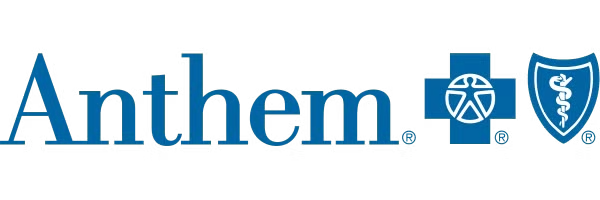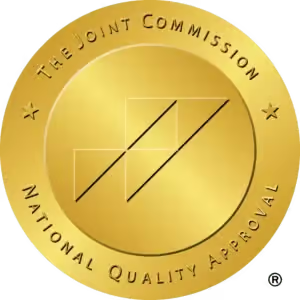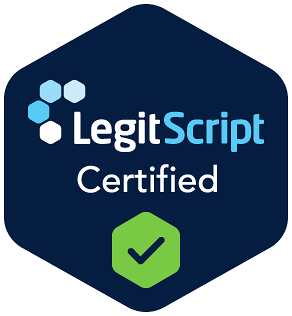Meth Addiction Treatment in New Hampshire
Live Free Recovery in New Hampshire provides evidence-based meth addiction treatment with full levels of care in Manchester and Keene. You’ll receive structured support, clear next steps, and proven therapies to build lasting recovery.
What Is Methamphetamine?
Methamphetamine is a powerful synthetic stimulant that floods the brain with dopamine and drives compulsive use. It appears in two forms (as crystal meth and powder meth) and can be smoked, snorted, injected, or swallowed.
Its intense effects can last many hours and often lead to sleep loss, poor appetite, and rising tolerance. With repeated use, the brain’s reward system is disrupted, which makes daily life feel flat without the drug and raises the risk for addiction.
Can You Overdose on Meth?
Yes. High doses can cause dangerously high body temperature, heart rhythm problems, stroke, or cardiac arrest. Seek emergency help right away.
Why Choose Live Free Recovery for Meth Rehab
Specialized Expertise
Our team delivers evidence-based care for stimulant addiction, with relapse prevention, 12-step support, and MAT when needed.
Comprehensive Care
You’ll access every level of treatment, from medical detox to aftercare planning, with integrated dual diagnosis support.
Individualized Treatment Plans
Each plan is tailored to your history, goals, and co-occurring needs, guided by our “Freedom Through Action” approach.
Gender-Specific Programming
Separate men’s and women’s programs address identity, relationships, and life skills in safe, clinically appropriate environments.
Causes and Signs of Meth Use
Recognizing risks and warning signs helps you act early and choose the right level of care.
Causes
- Stressful environments with conflict, instability, or exposure to substance use.
- Mental health concerns like anxiety, depression, PTSD, or untreated trauma.
- Family history of addiction that shapes impulse control and brain chemistry.
- Rapid tolerance that pushes higher doses and speeds the path to addiction.
Symptoms
- Rapid weight loss, disrupted sleep, and constant restlessness or energy.
- Severe dental decay (“meth mouth”), skin-picking, and visible sores.
- High heart rate, overheating, and mood swings that escalate quickly.
- Paranoia, hallucinations, or aggression that damages work and family life.
Side Effects of Methamphetamine
- Strained relationships and growing isolation over time
- Job loss, legal issues, and ongoing money problems
- Psychosis, severe anxiety, or deep depression
- Poor hygiene, dental decay, and visible aging
- Heart strain, seizures, stroke, or brain injury
- Overdose risk and medical emergencies

Our Meth Addiction Treatment Programs
You’ll receive a clear path from stabilization to skills-based recovery. Each level pairs therapy with practical tools so you can manage cravings, rebuild routines, and plan for the future.
Meth Detox Center Options
Our medical detox provides 24/7 care for 7 to 10 days of withdrawal. We manage cravings, mood changes, fatigue, and psychotic symptoms, using safe prescriptions for sleep, mood, and overall stability.

Residential Meth Rehab Programs
You’ll receive around 30 to 90 days of structured support in residential care. You’ll join therapy, skills training, wellness activities, and family sessions, with gender-specific tracks for trauma and relapse prevention.

Outpatient Treatment Services
- Partial Hospitalization Program (PHP): 5–8 hours daily, 5–7 days weekly, with clinical oversight and evening return home.
- Intensive Outpatient Program (IOP): 3–4 hours on several days, with therapy that fits around work or school schedules.
- Standard Outpatient Program: Flexible sessions for ongoing support, skills practice, and relapse prevention planning.

Sober Living Homes
In a sober living home, you’ll receive structure, accountability, and routine as you return to daily life. Practice recovery skills with peers who share your goals and values at a New Hampshire halfway house.

Therapies for Meth Recovery at Our Centers
Cognitive-Behavioral Therapy (CBT):
Identify triggers, practice healthy responses, and prevent relapse.
Individual, Group, and Family Therapies:
The Matrix Model adds education, skills, 12-step work, and support.
Medication-Assisted Treatment (MAT):
Medications ease cravings, improve mood, and support co-occurring needs.
Holistic Activities and Support:
Options include meditation, yoga, creative therapies, and nutrition guidance.
Motivational Interviewing:
Enhances internal motivation for change and builds your commitment to treatment.
Insurance and Costs
We accept most major insurance plans and offer self-pay options. Our team offers fast, confidential insurance verification and guidance.





Testimonials
Read More
Read More
Read More
Get Started Today
Meth addiction is treatable with the right care. At Live Free Recovery, you’ll receive a tailored plan, expert clinicians, and ongoing support from admission to aftercare. Call now or verify your insurance to begin recovery today.

Frequently Asked Questions
What makes meth so addictive?
Meth releases large amounts of dopamine and trains the brain to seek more. Over time, natural rewards feel flat, which fuels continued use.
How long does meth detox take?
Acute symptoms often last 7 to 10 days. Mood, energy, and sleep can take longer to stabilize, which is why step-down care is helpful.
Can you die from meth withdrawal?
Meth withdrawal is rarely life-threatening, but severe depression and suicidal thoughts can occur. Medical supervision keeps you safe and supported.
How effective is meth addiction treatment?
Outcomes improve with evidence-based care, consistent attendance, and a solid aftercare plan. CBT and the Matrix Model are especially helpful.
What happens during meth treatment?
You’ll complete an assessment, enter the right level of care, and attend individual and group sessions with education, skills training, and discharge planning.
Can someone with meth addiction recover?
Yes. Many people rebuild healthy routines, restore relationships, and maintain long-term recovery with treatment and support.
How do I know if someone needs meth addiction treatment?
Look for rapid weight loss, dental issues, paranoia, missed duties, money stress, and failed attempts to cut down or stop.
What should families expect during meth treatment?
Families can join education and therapy sessions to strengthen communication, set boundaries, and support recovery at home.
Our Behavioral Health Resources

Meet the Team
Get to know our experienced staff members who bring both clinical expertise and personal insight to the recovery journey.

Press Coverage
See published content about our innovative approach to treatment and our impact in New Hampshire communities.

Blog Articles
Access helpful tips and expert-backed mental health information. Explore insights into different conditions and advice for ongoing recovery.


